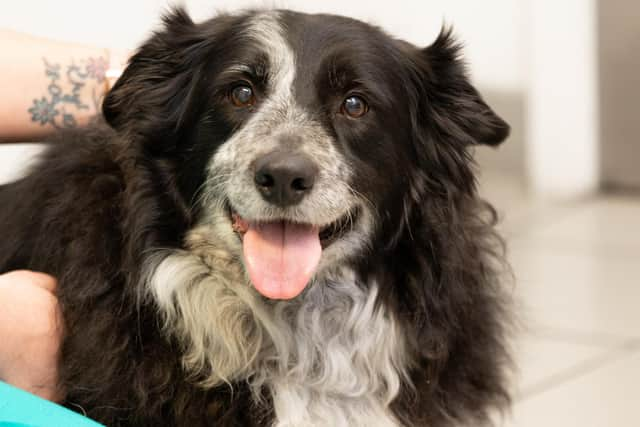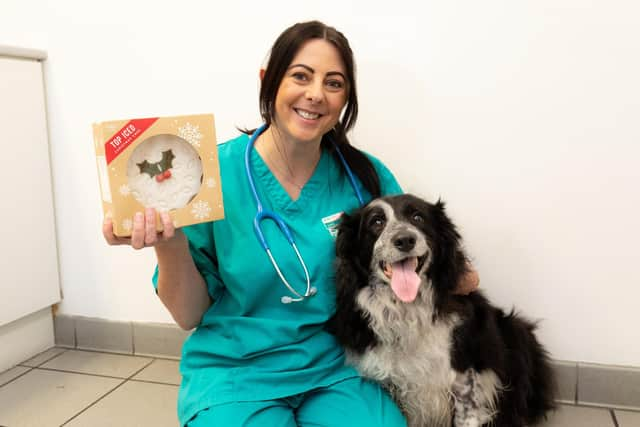Festive warning to pet owners after Derbyshire Border Collie poisoned when she got her paws on Christmas cake
and live on Freeview channel 276
Skye saw an opportunity to tuck into the toxic treat after her owner, Thelma Lee, 70, got up to answer the door. Thelma returned to find her Christmas cake, which she’d left to enjoy with her cup of coffee, had disappeared.
The pensioner knew the raisins, sultanas, currants and alcohol typically found in a Christmas cake can all be fatal for dogs so called the Derby PDSA Pet Hospital, despite it being 10pm, where the out of hours team advised to bring Skye straight in, to provide emergency treatment.
Advertisement
Hide AdAdvertisement
Hide AdThelma said: “As soon as I saw the Christmas cake missing, I knew she’d had it, she’s always eyeing up my food! I knew the cake and what’s in it could be very bad for her, so I rang PDSA straightaway.”


At Derby PDSA Pet Hospital, Skye was put on a fluid drip to help dilute the toxins in her system and given medication to prevent her body absorbing any more. She was kept in hospital and monitored closely for the next two days.
Thankfully, Skye has now made a full recovery but Thelma is joining PDSA in warning fellow owners about the dangers of toxic treats this Christmas.
Thelma, who has three children and four grandchildren, wants to ensure other owners don’t have to go through the panic and worry she experienced.
Advertisement
Hide AdAdvertisement
Hide Ad“Skye has been by my side for 11 years, and she means the world to me,” she added. “She’s such a loving dog who is a huge part of our family.”


Thelma, who hasn’t been able to work since undergoing treatment for cancer which damaged her back and bowel, says PDSA is a ‘lifeline’ for help with Skye.
“I don’t know what I’d do without PDSA,” she added. “I always give a good donation when I visit the Pet Hospital but I know I couldn’t afford a private vet, especially for life-saving treatment that Skye needed that night. Thank you to everyone who supports PDSA, without you, I might not have my best friend Skye with me this Christmas.”
PDSA Vet Nurse Shana Walsh said: “With the festive season here, many of us will have lots of treats, sweets and chocolates in the house. But while Christmas can be a time for indulgence for us, it’s important to remember that some foods can be very harmful to our pets.
Advertisement
Hide AdAdvertisement
Hide Ad“Onion and garlic, leeks, chocolate, alcohol, as well as currants, raisins and sultanas are all very dangerous. So owners should be careful of traditional Christmas foods like mince pies, stuffing and Christmas cake or pudding, which can all be harmful and should be kept safely out of paws’ reach.”
The warning comes as December sees a peak in poisoning cases reported to the Veterinary Poisons Information Service with over a fifth (20.3%) of alcohol, 16% of grape and dried fruit and nearly 10% of onion, garlic and leek cases all happening in that month.